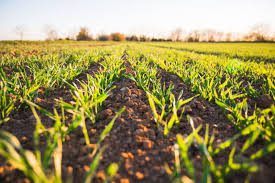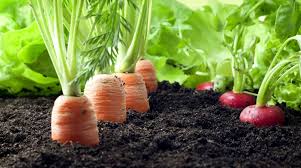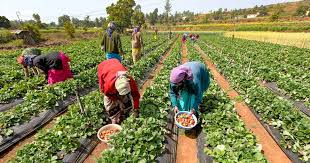Organic farming is an agricultural method that emphasizes the use of natural processes and materials to cultivate crops and raise livestock. It avoids synthetic fertilizers, pesticides, genetically modified organisms (GMOs), and other artificial inputs.
Organic farming promotes biodiversity, ecological balance, and sustainable agricultural practices. This approach aims to produce food that is not only healthy for consumers but also beneficial for the environment.
Principles of Organic Farming
Organic farming is guided by several key principles that form the foundation of its practices. Understanding these principles helps in the successful implementation of organic farming methods:
1. Health: Organic farming strives to enhance the health of soil, plants, animals, and humans. By maintaining healthy ecosystems, organic farmers produce nutritious food while minimizing negative impacts on the environment.
2. Ecology: This principle focuses on the interrelationships within ecosystems. Organic farming promotes biodiversity, sustainable practices, and natural processes to maintain ecological balance and resilience.
3. Fairness: Organic farming promotes fairness in the agricultural system. This includes fair treatment of farmers, workers, and consumers, ensuring that everyone involved in the production process benefits from organic practices.
4. Care: Organic farmers take responsibility for the health of the environment and future generations. This principle emphasizes sustainable practices that protect natural resources, promote soil health, and reduce pollution.
Benefits of Organic Farming

Organic farming offers numerous advantages for the environment, health, and local economies. Some of the key benefits include:
1. Environmental Health: Organic farming practices enhance soil health, reduce pollution, and promote biodiversity. By avoiding synthetic chemicals, organic farming protects ecosystems and wildlife habitats.
2. Improved Soil Fertility: Organic farming enhances soil fertility through practices like composting, crop rotation, and cover cropping. These methods increase soil organic matter, promote beneficial microorganisms, and improve nutrient availability.
3. Healthier Food: Organic produce is often fresher and free from synthetic pesticides and fertilizers, making it a healthier option for consumers. Studies have shown that organic foods may contain higher levels of certain nutrients and antioxidants.
4. Economic Benefits: Organic farming can provide higher profit margins due to the growing demand for organic products. Additionally, organic farming supports local economies by creating jobs and promoting sustainable practices.
5. Climate Change Mitigation: Organic farming practices can help sequester carbon in the soil, reducing greenhouse gas emissions and combating climate change. Techniques such as agroforestry, cover cropping, and reduced tillage enhance carbon storage.
Key Organic Farming Practices
Implementing organic farming involves adopting specific practices that align with its principles. Here are some essential practices commonly used in organic farming:
1. Crop Rotation: This involves alternating the types of crops grown in a specific area to improve soil health, reduce pest and disease pressure, and enhance nutrient availability. Crop rotation helps prevent nutrient depletion and promotes biodiversity.
2. Composting: Organic farmers create compost from decomposed organic matter, which enriches the soil with nutrients and enhances soil structure. Composting improves moisture retention and promotes beneficial microbial activity.
3. Integrated Pest Management (IPM): IPM focuses on controlling pests through a combination of biological, cultural, and mechanical methods. This includes using beneficial insects, crop rotation, and organic pesticides to minimize pest damage while preserving the environment.
4. Organic Fertilizers: Organic farmers utilize natural fertilizers such as compost, manure, and green manures to enhance soil fertility. These fertilizers provide essential nutrients to plants without harming the environment.
5. Conservation Tillage: Reducing soil disturbance through minimal tillage helps maintain soil structure, prevent erosion, and preserve soil moisture. Conservation tillage practices promote healthy ecosystems and improve soil health.
6. Cover Cropping: Planting cover crops during off-seasons helps prevent soil erosion, suppress weeds, and improve soil fertility. Cover crops enhance biodiversity and provide habitat for beneficial organisms.
Read Also: Snakes (venomous snakes): Description, Damages Caused, Control and Preventive Measures
Soil Health and Organic Farming

Soil health is a fundamental aspect of organic farming. Healthy soil is rich in organic matter, has good structure, and is home to diverse microorganisms that contribute to plant growth. Organic farming practices are designed to enhance soil health and maintain its fertility. Here’s how organic farming promotes soil health:
1. Enhancing Soil Structure: Organic practices, such as cover cropping and composting, improve soil structure by increasing organic matter. This enhances soil aeration, water retention, and root penetration, leading to healthier plants.
2. Nutrient Cycling: Organic farming promotes natural nutrient cycling through the use of organic fertilizers, such as compost and manure. These inputs provide essential nutrients in a slow-release manner, ensuring a steady supply for plants and reducing the risk of nutrient leaching.
3. Microbial Activity: Healthy soils contain a diverse range of microorganisms that help break down organic matter, fix nitrogen, and enhance nutrient availability. Organic farming encourages these beneficial organisms through practices like reduced tillage and the application of organic amendments.
4. Reducing Soil Erosion: Practices like cover cropping and conservation tillage protect soil from erosion. Cover crops provide ground cover that prevents soil loss during heavy rains, while conservation tillage reduces the disturbance of soil layers.
5. Soil pH Management: Organic farming relies on natural amendments, such as lime or sulfur, to manage soil pH levels. Healthy pH levels support optimal nutrient availability and microbial activity, leading to healthier crops.
Certification and Standards for Organic Farming
Certification is crucial for ensuring that agricultural products are truly organic. Various organizations and governmental bodies have established standards that farmers must meet to achieve organic certification. Here are key points regarding organic certification:
1. Certification Bodies: Different countries have various certification bodies responsible for overseeing organic standards. In the United States, the USDA (United States Department of Agriculture) regulates organic certification. Other countries may have their own certification organizations.
2. Standards for Organic Farming: To obtain organic certification, farmers must adhere to specific standards, which typically include:
i. No use of synthetic pesticides, herbicides, or fertilizers.
ii. Prohibition of GMOs (genetically modified organisms).
iii. Maintaining detailed records of farming practices and inputs used.
iv. Crop rotation and soil management practices to enhance soil health.
v. Use of organic seeds and planting stock when available.
3. Certification Process: The process usually involves several steps:
i. Application: Farmers submit an application to a certifying body, detailing their farming practices and inputs.
ii. Inspection: An inspector visits the farm to evaluate compliance with organic standards.
iii. Approval: If the farm meets the standards, the certifying body issues an organic certificate, allowing the farmer to sell their products as organic.
Read Also: The Appearance and Features of Water Snakes
Challenges in Organic Farming

While organic farming offers numerous benefits, it also presents several challenges that farmers must navigate:
1. Pest and Disease Management: Organic farmers often face difficulties in managing pests and diseases without synthetic chemicals. Developing effective integrated pest management (IPM) strategies can be challenging and requires ongoing education and adaptation.
2. Certification Process: The certification process can be lengthy and costly, creating barriers for small-scale farmers. Maintaining certification requires continuous compliance with standards, which can be resource-intensive.
3. Soil Fertility Maintenance: Organic farmers rely on natural inputs to maintain soil fertility. Ensuring that soil remains productive without synthetic fertilizers can be challenging, especially in nutrient-depleted soils.
4. Market Competition: As organic products become more popular, competition in the market increases. Farmers must find effective marketing strategies to differentiate their products and reach consumers.
5. Weather and Climate Variability: Organic farming practices may be more sensitive to climate fluctuations. Organic farmers may face challenges in adjusting their practices to changing weather patterns and extreme conditions.
Future Trends in Organic Farming
The future of organic farming is promising, with several trends shaping its evolution:
1. Increasing Demand for Organic Products: Consumer awareness of health and environmental issues is driving the demand for organic foods. This trend is expected to continue, leading to growth opportunities for organic farmers.
2. Technological Advancements: Innovations in technology, such as precision farming, can enhance organic farming practices. Tools like soil sensors, drones, and data analytics can help farmers make informed decisions to improve productivity and sustainability.
3. Sustainable Practices Integration: Organic farming is likely to integrate more sustainable practices, such as agroecology and permaculture, which focus on ecological principles and resilience.
4. Expanding Market Access: As demand for organic products increases, new market opportunities may arise. Farmers can explore local farmers’ markets, subscription services, and online sales to reach consumers directly.
5. Community Supported Agriculture (CSA): The CSA model, where consumers support local farms by purchasing shares, is gaining popularity. This approach fosters a strong connection between consumers and producers, benefiting local economies.
6. Research and Education: Ongoing research into organic farming practices will continue to provide valuable insights. Increased access to education and resources for farmers will help them adopt and adapt organic practices successfully.
Organic farming represents a sustainable approach to agriculture that prioritizes soil health, ecological balance, and consumer health.
While challenges exist, the future of organic farming looks bright, driven by increasing demand and innovations in sustainable practices.
Do you have any questions, suggestions, or contributions? If so, please feel free to use the comment box below to share your thoughts. We also encourage you to kindly share this information with others who might benefit from it. Since we can’t reach everyone at once, we truly appreciate your help in spreading the word. Thank you so much for your support and for sharing!
Read Also: Top 20 Proven Benefits of Ginger Plant

